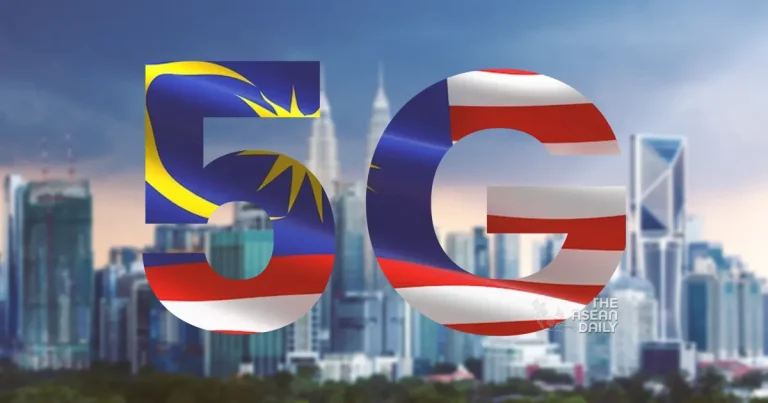23-10-2023 (KUALA LUMPUR) The tussle for control of a second 5G network is causing political and commercial strife in Malaysia, posing a threat to the government-led first network, which is already nearing 80 percent coverage in populated areas. Major telcos are vying for the potentially lucrative opportunity to lead a second wholesale network for the next-generation mobile service, while Prime Minister Anwar Ibrahim openly supports China’s Huawei as the equipment provider for it.
Telcos’ plans to abandon the state-led Digital Nasional Berhad (DNB) to build a second network could affect the financial viability of the first 5G network. This may lead to further delays in achieving national access to faster mobile data and the implementation of advanced enterprise solutions.
The battle to control what stakeholders refer to as “Entity B” has put negotiations for equity participation in DNB by the top five players on hold, depriving the government vehicle of new funds. The uncertainty around DNB’s future has also impacted access to funding for the RM16.5 billion ($4.75 billion) rollout of the super-fast network.
The Malaysian government decided to allow a second provider to enter the 5G arena after DNB reaches 80 percent coverage, with the aim of complementing DNB and providing competition. However, indications suggest that telcos want Entity B to focus on densely populated areas to reduce costs and gain control over crucial spectrum bands for mobile data services.
The uncertainty surrounding DNB has also hindered access to funding for the RM16.5 billion ($4.75 billion) rollout of the 5G network. Communications and Digital Minister Fahmi Fadzil has stated that a share sale agreement for DNB will be finalized soon, but there is still no decision on the second network’s construction and terms.
Differing views on Huawei’s involvement have created uncertainty, with some fearing data security concerns due to Huawei’s participation. The involvement of Chinese telco equipment giant Huawei has sparked concerns about security and investor confidence.
Prime Minister Anwar has openly expressed support for Huawei in the construction of Entity B, but the decision remains pending. The government has suggested that either CelcomDigi, Maxis, or uMobile should continue to own and use DNB to ensure it remains financially viable.
This situation has led to speculation that the major telcos want to “kill off” DNB to acquire its assets at a lower cost and avoid paying high access fees to DNB. Future regulatory policies, such as retail pricing and lock-in periods, are also subjects of debate.
The ongoing disputes are likely to impact consumers and the telecommunications landscape in Malaysia, potentially leading to higher costs and less competition, returning the country to a 4G framework where major telcos called the shots, and smaller players were at their mercy.
Efforts to launch 5G in Malaysia have been ongoing since 2018, but delays and political disputes have hindered progress, leaving DNB without clear leadership. The lack of transparency and pricing issues led to a government review, opening equity in DNB to private operators in 2022.
The delays have left DNB without a clear direction, and the board still lacks new shareholders, which is further delaying its progress in the 5G arena.




